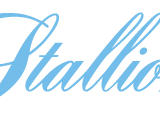WIDDEN Stud, in the Widden Valley has a rich history of colonial settlement encompassing more than 140 years. These days Antony Thompson is a seventh generation family member who has the responsibility of upholding the fine tradition of this highly respected thoroughbred nursery. Stallions from the immediate past who have called Widden ‘home’ include Marscay, Vain, Bletchingly, Todman and General Nediym. The current list includes champion sire Sebring and exciting newcomers to the stallion ranks Zoustar and Shamus Award.
[gdlr_divider type=”solid” size=”50%” ] Q: Antony, I’m sure you would have a lot of interesting memories of growing up at Widden?
Q: Antony, I’m sure you would have a lot of interesting memories of growing up at Widden?
A: “Yes, there are many memories. I can still remember when Todman died, I think I was about four at the time and it is something that really sticks in my mind, that and listening to the races on the radio. Before we had television, we would always have the radio going on a Saturday, Kingston Town’s 1982 Cox Plate win, with Bill Collins’ famous line ‘Kingston Town can’t win!’ was memorable. His sire Bletchingly was standing here at the time and our heads dropped when we heard that, but then of course he went on to win. “I also have fond memories of going with Dad to the local races at Scone and Muswellbrook. All of those things are part of my life here that I won’t forget.”
Q: And now your own children would be having interesting memories of their own. You and your wife Katie have two children, right?
A: “We have two children, Amy and Sam. Amy our daughter is 12 and son Sam is 11. Both are very keen riders and enjoy competing with their horses in eventing and showjumping. They also like to watch horses racing, especially ones who were bred here or those sired by our stallions and they are big Black Caviar fans too. She was their first real racehorse ‘idol’ and they were lucky enough to see her race when she came to Randwick for her Sydney farewell. It was an amazing day and one none of us will forget. “Peter Moody was great, whenever he came out to the farm to look at yearlings he always had plenty of time for the kids. He would sit and have a chat to them, so they always enjoyed seeing him.”
Q: Did you attend a local school in the area?
A: “I went to Widden Public School until I was 10, but then it closed down so I went off to boarding school at Kings School in Parramatta. I enjoyed studying agriculture while at Kings and did quite well in that subject, I guess being from the bush certainly helped!”
Q: After you left school, did you go straight into the workforce or did you attend university?
A: “No uni for me, I went straight from school to my first job, working as a jackeroo at Glenrock Station, Barrington Tops. It’s a huge 100,000 acre (40,470ha) property and I was doing lots of riding, mustering cattle and all those other jobs you have to do on a place like that. “After that I went to New Zealand to work at Ra Ora Stud, and then I came back to Australia to work for the late John Morrish who trained at Randwick. I had a great time working for John, who had some quality horses back then and he was a really nice guy too. I worked with him for around six months before heading to New Zealand again, this time to work at Cambridge Stud, before heading off to work in America and Europe. It was a great experience to travel and gain some independence, which allowed me to become a little more worldly.”
Q: What would be some of the biggest differences between the way things are done on farms overseas compared to here in Australia?
A: “The way they run their farms and businesses is all to do with the environment, both in terms of climate and financial consideration, for example the cost of labour. In Australia, we have relatively high labour costs so we tend to run less staff per number of horses than they would in say South Africa. So that would be the biggest difference. “Obviously the quarantine situation and diseases they are dealing with in different countries also have a say in how things are done. I think we can learn from all of them too, in the way they have adapted to problems and challenges in their own environment.”
Q: So when did you come back to work at Widden?
A: “I came back here when I was 21 and started working alongside Derek Field, he’s been here 30 years now and is the general manager. I have worked closely with Derek and the rest of the team ever since.”
Q: I know that although primarily you breed to sell at Widden, you have raced horses over the years. Who are some of the most memorable of these?
A: “We raced a gorgeous grey mare called Juste Momente who won the Sangster Stakes-Gr.1 in Adelaide, with Danny O’Brien and Peter Murray who are friends of ours. We bought Zoustar just before he won the Coolmore, so that was a thrill and Barathea, we purchased right before he won the Breeders’ Cup. We raced quality mares La Zoffany and Golden Delicious later in their careers and are currently racing Takedown and Stratum Star, so we’ve have had a lot of fun over the years.”
Q: You have certainly had some wonderful stallions there at the stud since it began, who are some of the ones that particularly stand out to you personally?
A: “You can’t help getting emotionally involved with the stallions after working so closely with them and you do form a real bond. Growing up with Vain, he was definitely my favourite horse as a kid. He was a remarkable racehorse and a real character too. Marscay was a big, tough imposing horse and one who you had to have a lot of respect for, while Bletchingly was lovely. He had feet problems so there was a lot of time, effort and care that went into keeping him going. He was not big, imposing or impressive, but he was a champion. “In later years another stallion we had to spend a lot of time with, due to his quirks, was General Nediym. A very shy breeder, we were the fourth stud to stand him. He was a lovely horse to do anything with, except for covering mares. He would just decide some days he didn’t want to cover, so we had to try not to get frustrated and just figure out how to get him going! “Anabaa and Barathea, the shuttle horses, were great to work with and they made impacts in their own way. Anabaa was a gorgeous horse and definitely another favourite. Now I am enjoying working with Sebring, Star Witness, Your Song and our lovely young stallions Zoustar and Shamus Award.”
Q: Those last two, Zoustar and Shamus Award, had their first foals born this season, how are they shaping up?
A: “It’s been exciting for us. Shamus Award won the Cox Plate-Australian Guineas double and is Snitzel’s best son, while Zoustar is very important to us being Northern Meteor’s best son. Shamus Award has some lovely foals and Zoustar’s foals look very much like your typical Northern Meteor types.”
Q: So how do you acquire a new stallion, is it that you know what type of horse you want and go out looking, or is it more that you will spot one racing and decide that you want him?
A: “It’s more the latter, you see a colt racing early days, so you really get excited by them and you follow their career closely and hope that they go on. There’s a fair bit of research involved, but at the end of the day it’s more about ‘gut feel.’ Once you’ve identified what could be a potential stallion then it just comes down to how you feel when you see that horse in the flesh. There are some that you really get a hunch on and you want them no matter what.”
Q: Do you have an eye on any stallions at the moment?
A: “We are always looking to the future and working on obtaining new stallions. There are a couple that we are looking at right now, but whether they step up to the plate and come this way remains to be seen. We are also always seeking to upgrade our broodmare band and reinvest back into the farm with improvements, such as buildings, fencing etc. The work on that side of it has been going on now for 149 years and we’ve still got plenty to do.”
Q: I guess with all the travelling you have done and the people you have met over the years, there would be certain names who have had an influence on you in some way?
A: “Alec Head from France would be one I really admire. He’s a remarkable horseman, a great trainer and breeder who has been involved with some of the great thoroughbreds of his time. Alec has definitely been a real mentor and huge influence, I look at everything he has achieved and try to learn from that.”
Q: If a young person came to you for advice on how to be successful within this industry what would you tell them?
A: “Work hard and work with the best people. Be enthusiastic about everything you do and opportunities will open up offering the potential to progress quickly.” n



